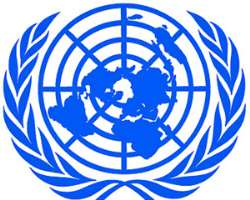Twenty-sixth High-Level Meeting of Heads of UN Peace Missions in West Africa

DAKAR, Senegal, May 12, 2014/African Press Organization (APO)/ -- At the invitation of Mr. Said Djinnit, Special Representative of the UN Secretary-General for West Africa and Head of the United Nations Office for West Africa (UNOWA), the Heads of the United Nations Peace Missions in West Africa held their Twenty-sixth high-level consultation meeting on 9 May 2014 in Dakar.
The objective of this regular meeting is to review progress in the implementation of the respective UN mandates in the region, to strengthen coordination in order to address common challenges in the areas of governance, decentralization, organized crime, and to examine the prospects of democratic transitions in the West Africa region.
The Heads of peace missions noted the paramount importance of investing in youth, respect for human rights, and fostering a culture of tolerance, inclusion and confidence-building mechanisms for political reconciliation and dialogue, and reiterated the need for respect of constitutional arrangements and the conduct of free and fair elections.
The meeting also emphasized the necessary role of the UN in support of peacebuilding, including through effective security sector reforms. On reforms in Guinea-Bissau, as an example, partners support should focus on integrating aspects that would ensure national stakeholders buy-in, including through incentive packages for reformed military and a transversal reform aimed at state-building. With regard to Cote d'Ivoire, the participants appealed to the international community for financial support to the existing Disarmament, Demobilization and Reintegration plan.
The participants highlighted the continuous resource challenges faced in the region, exacerbated by the lack of fiscal policies, and the over-reliance on external support to maintain functioning administrations. The involvement of the international community, through donors, solidarity conferences or contact groups, remains critical in order to guarantee appropriate support and resources to fragile transitions such as in Guinea-Bissau. All speakers noted the threats posed by organized crime and corruption to State institutions in their respective areas of responsibility. How to mobilize international assistance in order to strengthen State institutions in the region has emerged as a central question.
The meeting assessed the situation in the three zones of instability identified in the region – the Sahel, the Mano River Union and the Gulf of Guinea. The difficulties to control borders and curb terrorist threats and the links between extremist groups operating in West Africa were evoked. The interregional dynamics underlying political and security challenges in West Africa were emphasized. The electoral cycle starting in 2014 presents various risks. The evolving situations in Mauritania, Guinea, Togo, Burkina Faso and Nigeria were brought to focus at the meeting, which also welcomed the commitment of the international community to help address the security threats in Nigeria. In this regard, the meeting noted the recent decision made by the Secretary General to designate an Envoy. The meeting observed that the complexity of the political situation in the pre-electoral cycle, with the multiplication of tensions within political parties, in the current context of security and terrorism, poses challenges to regional organizations and the United Nations alike.
The need to support peaceful transitions, paramount to the consolidation of democracy, and the effective role that can be played in this regard by regional organizations especially ECOWAS, was highlighted by the leadership of the UN missions in the region. In this connection, the participants insisted on the need for the international community to accompany the electoral processes scheduled for 2015, to ensure a peaceful environment, an inclusive participation, political dialogue, transparency, and timely completion of the technical aspects of the respective electoral calendars.
The meeting agreed that this period of democratic transitions also conditions the draw-down and exit strategies of UN peace missions in the region. In order to achieve sustainable success, the participants agreed on the need to ensure effective national ownership, and reinforce the national capacities to build resilient foundations for economic prosperity and political stability.
The Heads of UN Missions thanked SRSG Ramos-Horta, who will end his assignment in June 2014, for the work he has accomplished during his tenure and his deep commitment to the peaceful transition in Guinea-Bissau.
